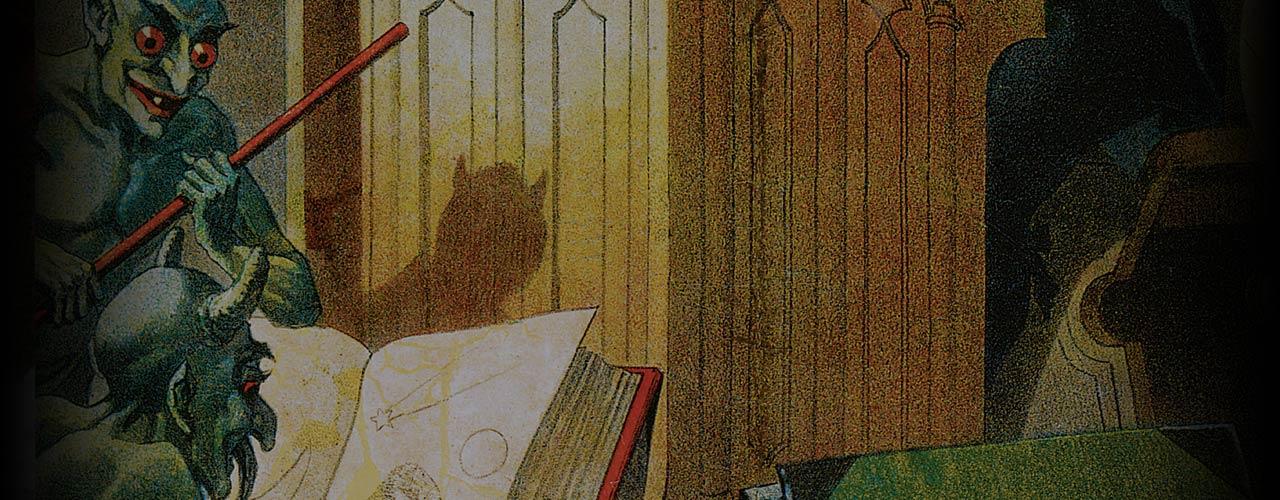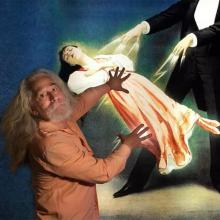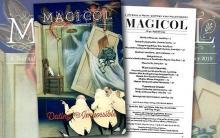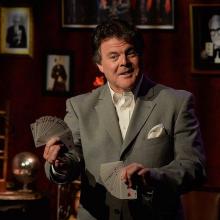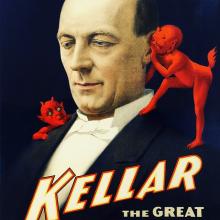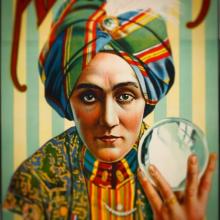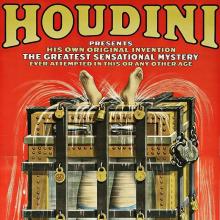Submitted by Jamy Ian Swiss on
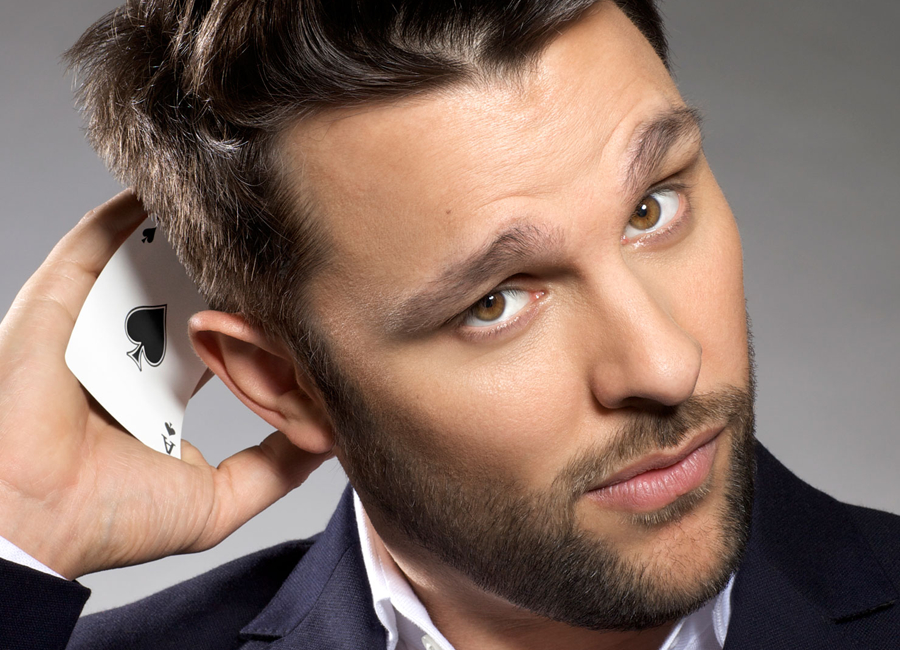
BENJAMIN EARL
The Top Ten Questions People Ask Magicians invariably include “How’d you get started?” and “How long have you been doing this?” and “How much do you practice?” and “What do you do for a living?” Another common query is, “Do you ever get fooled by other magicians?”
Magic is filled with specialties and sub-specialties; magician competitions are typically judged in categories that reflect distinctions such as Grand Illusion, Manipulative Magic, General Magic, Close-up Magic, and sometimes sub-specialties such as Card Magic or even Comedy Magic (although this latter is a style of performance, rather than a true distinction about the fundamental characteristics of the material). Hence many magicians are routinely fooled by work outside of their own particular specialty; close-up magicians tend not to know all that much about Grand Illusion principles, illusionists aren’t all that well informed about mentalism, and mentalists don’t know much about performing magic for children. So it’s a commonplace that one can readily be fooled outside of one’s particular expertise.
There are plenty of exceptions to this, especially among “general practitioners” who might perform everything from close-up magic to platform and stage magic to mentalism and more. Some of these kinds of performers are Jacks-of-All-Trades and “masters of none,” but there are some veteran artists who do achieve true mastery in such a broad range of pursuits. And then again, there is also the breed of “magic consultant,” for both live performers and especially television performers, the latter group often working with a team of expert co-creators. As someone who has served in this role for a number of performers and television projects, I’ve managed to amass a sufficiently broad range of knowledge such that I am perhaps more rarely fooled than many others, but that’s a far cry from saying I never get fooled, because I do. That said, perhaps the most interesting implication of the question and its more nuanced answers however is the fact that the best magicians actively seek the experience of being fooled, and cherish the rare moments when it happens. But that is a deep dive subject for another day.
The reason I mention it this week however is that I just returned from London where I performed and lectured (twice) at “The Session,” an annual convention of magicians. Between a brutal case of jet lag and demands on my schedule not only for my convention appearances but also for time spent shooting a number of future video projects, I unfortunately only had the chance to see a handful of events on the convention’s program. But of what I did see, one of the standout performers I met was a British magician by the name of Benjamin Earl, who presented an excellent lecture about sleight-of-hand magic with coins and cards.
Earl’s instructional material was thoughtful, his ideas occasionally intellectually provocative, and his performances were distinctive and simply beautiful to watch. This was not entirely a surprise as I have previously seen some of his instructional videos, but that content was some years old and it was a refreshing experience to see the man at his current stage of development. We shared a dinner with a small group one evening and discussed some principles of magic theory, and all told, Mr. Earl was one of the highlights of my trip.
What does this have to do with magicians fooling other magicians? Well, besides the fact that many were fooled by much of what Mr. Earl was demonstrating (and one technical item in particular fooled me even upon repeated live demonstration), there is an interesting case on record of Mr. Earl fooling a couple of magicians that is a perfect example of yet another aspect of this issue: namely, magicians being fooled when they don’t realize they’ve been fooled.
This happens far more frequently than magicians themselves generally imagine. I do wish I had the proverbial dollar (since a nickel’s not worth what it once was) for every time I heard a close-up magician “explain” a grand illusion or a television magic performance, when in fact he has no idea of the genuine principles. I long ago gave up attempting to correct such common misapprehensions; it’s a case of this Randall Munroe comic strip often coming to mind:
Before I get to the precise example I have in mind, however, here’s a brief sample of Ben Earl for your viewing pleasure. Here he performs, as he says, “a simple trick,” but in Mr. Earl’s hands he has twisted it to his own sensibilities, and I like the results very much. Not only do I like Mr. Earl’s softly spoken but confident demeanor, which I find compelling and attractive, and the context in which he frames this piece, but I also very much enjoy his distinctive style of card handling. This is difficult to articulate in specific terms, but he combines a soft touch and expert precision with a note of muscular casualness—for lack of a better description—that yields a distinctive, individualized style.
Turn up the sound, expand the browser, put down your phone, and enjoy a “simple” card trick performed by Benjamin Earl.
BenJAMIN Ear l| baffling card trick
You’re back. I hope you enjoyed that. Now to pick up the story again about magicians fooling one another, and not always recognizing it …
Part of Mr. Earl’s lecture at The Session addressed a routine he performed in the first (British) season of Penn & Teller’s “Fool Us” series, in which magicians go on a reality-based performance show and attempt to fool Penn & Teller. While fooling one another is not much of a measure of the quality of a magician’s work—and somewhat ironically, Penn & Teller used to close their first Off-Broadway and Broadway show by admonishing the audience that they didn’t want people thinking about how they did their tricks, but rather, why—the best part of this series is that the magic is beautifully shot, and Penn’s commentary tends to focus on a kind of “art appreciation” of magic, cueing the viewer as to what to pay attention to in a magician’s performance, what sets one performer apart from another, and where the individual artist’s interpretation really enters into the art of magic. Whether or not performers end up fooling the hosts is not really the point of the show at all, it’s just a reality hook, an excuse for a good magic show. And it’s nice that, unlike a show like “America’s Got Talent,” in which the judges have little if any notion or taste whatsoever about what they are looking at, Penn & Teller are certainly qualified to be judging magic.
Below you will get to watch Mr. Earl’s performance on “Fool Us.” Unfortunately it is not the entire clip, as it is missing Penn & Teller’s discussion and analysis following the act, and the process by which they eventually came around to determining that Mr. Earl had won a “Fool Us” trophy by fooling the hosts.
But without much further ado, here’s the thing: Mr. Earl performed this routine in London and I daresay fooled a lot of the attendees. A lot of them. And when, several years ago, he performed this on “Fool Us,” not only did he fool Penn & Teller, but there are discussion threads on magic forums in which there are multiple posts from magicians who are certain that not only do they know the method (and they are wrong), but that Penn & Teller were “in on it” and had handed Mr. Earl a previously arranged deck! (Remember that dollar I wish I had? I could dine out on just one of these threads, and get positively rich on an entire magic forum.)
Now the key facts of the matter are that in the broadcast, when Mr. Earl asks Penn & Teller for a deck of cards, he spreads the pack face-up across the table and looks them over, attempting to openly memorize the order, before proceeding with the rest of the routine. Magicians studying the routine concluded that Penn & Teller had handed Earl a previously prearranged pack in order to enable him to accomplish his feats. Now, when I watched the video, I not only understood that Mr. Earl did not require a prearranged deck, but I also did not believe that Penn & Teller would take part in deceiving their audience in this fashion, which would violate the fundamental principles of the show (in which I know for a fact that Penn & Teller don’t even know what guests are booked until the moment the guest performer steps out on stage, even if it’s someone they know personally or professionally).
On doing some further investigating, it turns out that in reality, the routine began with Penn & Teller not only providing the deck of cards, but also shuffling it—on camera. However the producers saw fit to edit this step out of the proceedings, failing to understand the importance of retaining this element in order to maintain the clarity and power and deceptiveness of the routine—for magicians and the general public alike! (Welcome to doing magic on TV. Someday maybe we'll talk more about that.)
And so the lovely ironies of these events are multi-layered. Not only did the very talented Ben Earl manage to fool Penn & Teller as well as the fantasists on the magic forums, but also those same commentators were quite confident that they had not been fooled—and, as it turns out, they were in excellent company. Because Penn & Teller also believed they had not been fooled, and the “Fool Us” trophy was awarded to Mr. Earl thanks to expert behind-the-scenes judges who are part of the “Fool Us” judging process. (It is not the only time this has happened, and this isn’t a knock on the show; if anything it’s a compliment to the system that they have developed.)
So: “Do you ever get fooled by other magicians?” Hell yes—and that’s a great thing! Now remember: Browser big … phone down … volume up … and now be fooled … and appreciate … a guy named Ben Earl—the most recent guy to fool me, exactly a week ago in London.
Benjamin Earl | Past Midnight
SEE TAKE TWO INDEX

